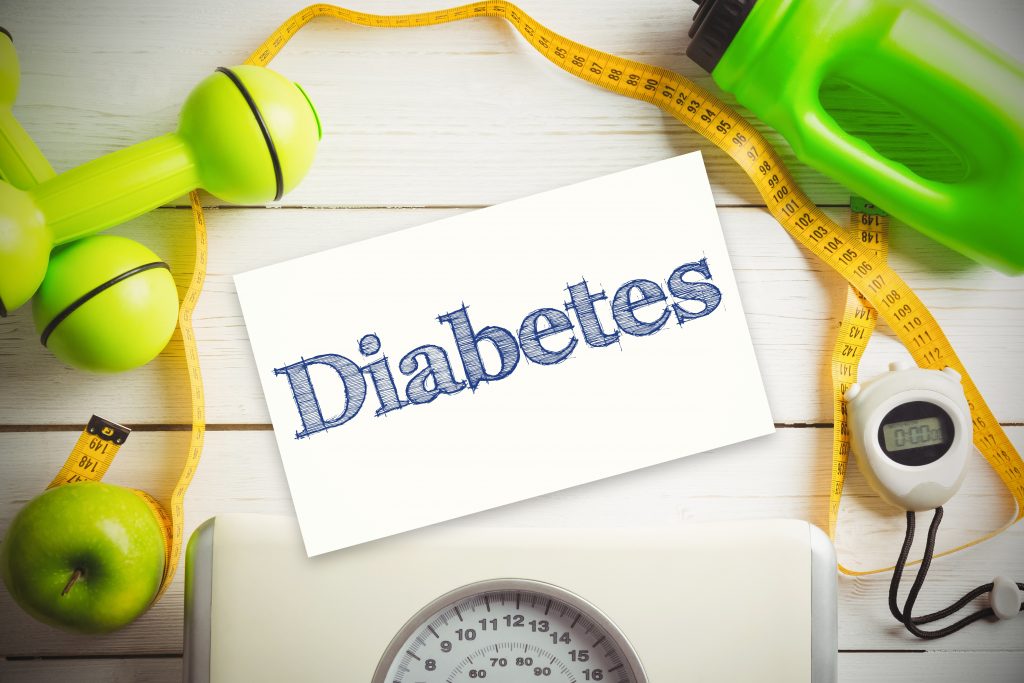Are you wondering whether skipping breakfast is the key to shedding those extra pounds? It’s a common dilemma many of us face on our weight loss journey. You might have heard conflicting opinions about whether it’s a good idea or not.
Well, the truth is, there’s no one-size-fits-all answer to this question. Each of us is unique, with different lifestyles, health conditions, and metabolic quirks. So, let’s explore the science behind skipping breakfast for weight loss and discover how it may affect you personally.
Before we dive in, let’s make one thing clear – breakfast is not the enemy! It’s a crucial meal that kickstarts our day with energy and nutrients. But, for some, skipping breakfast has become a trendy strategy to shed those stubborn pounds. So, the big question is- Is it the right strategy for you?
In this article, we’ll explore the impact of skipping breakfast on weight loss for various lifestyles. Whether you’re a workout enthusiast, a busy office worker, a diabetic, or even a breastfeeding mother, we’ll cover it all. Our goal is to provide you with factual, evidence-based information, so you can make an informed decision about your weight loss journey.
How Skipping Breakfast Affects Weight Loss
Understanding the role of Metabolism
Our metabolism, which is responsible for converting food into energy, plays an important role in weight management for everyone, regardless of their lifestyle or health condition. When it comes to skipping breakfast, the impact on metabolism can differ among individuals.
For some people, skipping breakfast may lead to a slight reduction in calorie intake, which could promote weight loss. For others, however, it may cause fluctuations in blood sugar levels, especially for diabetics, or they may face challenges in managing their weight due to a slower metabolism.
The Science behind Skipping Breakfast for Weight Loss
Skipping breakfast for weight loss is based on the concept of intermittent fasting, a popular eating pattern that involves alternating periods of eating and fasting. The idea is that by extending the fasting period, you create a calorie deficit that can lead to weight loss over time.
During the fasting periods, your body can draw on its fat stores for energy, boosting fat burning. This process can help you shed unwanted pounds and reduce body fat. In addition, intermittent fasting has been shown to improve insulin sensitivity, which is beneficial for weight management, especially for individuals with insulin resistance or prediabetes.
However, it is important to note that the effects of skipping breakfast for weight loss can vary from person to person. While some people may experience positive outcomes, others may not. When deciding whether skipping breakfast is an appropriate approach for your weight loss, it is important to consider individual factors such as metabolism, lifestyle and general health. A consultation with a doctor or dietitian can give you personalised advice and help you determine if this method fits your specific needs and goals.
Also Check – The Pros and Cons of Skipping Lunch for Weight Loss
Pros and cons of Skipping Breakfast approach
Pros-
- Calorie reduction- Skipping breakfast can naturally result in reduced calorie intake throughout the day, supporting weight loss efforts for some individuals.
- Intermittent fasting benefits- Certain people may experience improved insulin sensitivity and enhanced fat burning during the fasting periods, contributing to weight management.
Cons-
- Reduced energy levels- For some, skipping breakfast can lead to feeling less energised and focused, potentially impacting productivity.
- Overeating later- Some individuals may compensate for skipping breakfast by overeating during other meals or reaching for unhealthy snacks, which could hinder weight loss efforts.
- Individual differences- The effectiveness of skipping breakfast for weight loss can vary widely based on individual factors like lifestyle, genetics, and underlying health conditions.
- Nutrient intake for breastfeeding mothers- For breastfeeding mothers, it’s essential to pay attention to nutrient intake to support both their health and their baby’s growth and development.
Customising Breakfast Skipping for Effective Weight Loss
Fitness Enthusiasts: Skipping Breakfast for Weight Loss
Meeting nutritional needs
For those leading an active lifestyle, whether you’re hitting the gym, going for runs, or engaging in sports, proper nutrition is essential. When considering skipping breakfast for weight loss, you need to ensure you’re still getting the necessary nutrients to support your physical activities.
Since breakfast provides a range of nutrients like carbohydrates for energy, protein for muscle repair, and vitamins for overall health, skipping it could lead to potential nutrient deficiencies. It’s crucial to focus on other meals and snacks throughout the day to meet your nutritional requirements adequately.
Impact on performance and recovery
Breakfast plays a vital role in fueling your workouts and aiding in post-exercise recovery. Skipping breakfast before your training session might leave you feeling fatigued and affect your performance, making it harder to reach your fitness goals.
Moreover, without proper post-workout nutrition, such as a balanced breakfast, your body may struggle to repair muscles and replenish glycogen stores effectively. This could delay recovery and hinder your progress in achieving muscle growth or endurance improvements.
Sedentary Individuals: Breakfast Skipping Approach

Energy expenditure considerations
For individuals leading a sedentary lifestyle, such as office workers who spend most of their day sitting, the impact of skipping breakfast on weight loss might differ compared to active individuals. Sedentary individuals generally have lower energy expenditure, as they burn fewer calories throughout the day.
Skipping breakfast in this case might lead to reduced calorie intake, potentially creating a calorie deficit and aiding in weight loss. However, it’s crucial to consider the nutritional value of the skipped meal and ensure you’re still getting enough nutrients from other meals to support your overall health.
Effects on sedentary lifestyle
Skipping breakfast might not have the same impact on energy levels and physical performance for sedentary individuals as it does for active ones. Since their daily physical demands are lower, they might not experience the same levels of fatigue from missing breakfast.
However, there are other factors to consider, such as prolonged fasting leading to possible overeating later in the day or choosing unhealthy snacks, which could offset any potential weight loss benefits.
Health Conditions and Weight Loss: A Balanced Approach
Diabetes- Managing blood sugar levels

Impact on blood glucose levels
For individuals with diabetes, managing blood sugar levels is a top priority. When considering skipping breakfast for weight loss, it’s essential to understand how it can affect blood glucose levels. Skipping breakfast may lead to prolonged fasting periods, which could potentially cause fluctuations in blood sugar levels.
In some cases, skipping breakfast might result in lower blood sugar levels (hypoglycemia) for diabetic individuals who take medications or insulin to manage their condition. On the other hand, others might experience higher blood sugar levels (hyperglycemia) due to the body’s response to fasting.
Considerations for diabetic individuals
If you have diabetes and are contemplating skipping breakfast for weight loss, it’s crucial to consult with your healthcare provider or a registered dietitian. They can help create a personalised meal plan that considers your diabetes management goals while supporting your weight loss efforts.
A balanced and consistent approach to eating, with a focus on nutrient-dense meals and snacks, is generally recommended for individuals with diabetes. This approach can help stabilise blood sugar levels and support overall health.
Hormonal Imbalances- Impact on Weight Management

Understanding the Connection between Hormones and Weight
Hormones are chemical messengers in our bodies that play a crucial role in regulating various processes, including metabolism and weight management. When hormones are imbalanced, it can lead to difficulties in losing or maintaining weight. Some key hormones involved in weight regulation are:
- Leptin: This hormone helps control hunger and signals when we’re full. When leptin levels are low, it can lead to increased appetite and overeating.
- Ghrelin: Known as the “hunger hormone,” ghrelin stimulates appetite. Higher ghrelin levels can lead to more frequent feelings of hunger.
- Insulin: Insulin regulates blood sugar levels. High insulin levels can promote fat storage and inhibit fat burning.
- Cortisol: The “stress hormone” cortisol can influence fat storage, especially in the abdominal area.
- Thyroid hormones: Thyroid hormones control metabolism, and imbalances can slow down or speed up the metabolic rate.
Effects of Skipping Breakfast on Hormonal Health
Skipping breakfast can have varying effects on hormonal health, depending on the individual. Some potential consequences are:
- Increased ghrelin levels: When you skip breakfast, ghrelin levels may rise, leading to heightened feelings of hunger and potentially overeating later in the day.
- Imbalanced insulin levels: Breakfast helps stabilise blood sugar levels after fasting overnight. Skipping it may lead to fluctuations in insulin levels, affecting how the body processes sugars and fats.
- Stress response: Going without breakfast can trigger stress responses in the body, leading to elevated cortisol levels, which may impact weight management.
- Slower metabolism: For some people, skipping breakfast can lead to a slowed metabolism, making it harder to burn calories efficiently.
Gastrointestinal Problems: Digestive System Implications

Consider Gut Health and Digestion
A healthy gastrointestinal (GI) system is vital for proper digestion and nutrient absorption. The gut contains a diverse community of microorganisms known as the gut microbiome, which influences various aspects of health, including weight management.
A balanced diet that includes breakfast provides essential nutrients for gut health. Fiber-rich foods like fruits, vegetables, and whole grains support a healthy gut by promoting regular bowel movements and nourishing beneficial gut bacteria.
How Skipping Breakfast Can Affect Gastrointestinal Issues
Skipping breakfast may have the following implications on GI health:
- Disrupted gut microbiome: A lack of dietary diversity, which could occur when breakfast is skipped regularly, may negatively affect the gut microbiome. This disruption can impact digestion and overall gut health.
- Constipation: Without breakfast, the body misses out on essential fibre that aids in maintaining regular bowel movements. This can lead to constipation and discomfort.
- Acid reflux: Breakfast can help kick start digestion and reduce the likelihood of acid reflux symptoms. Skipping breakfast might increase the chances of experiencing acid reflux.
- Nutrient deficiencies: Skipping breakfast may lead to missing out on essential vitamins and minerals, which are crucial for overall health, including GI function.
Breastfeeding mothers- Nourishing mother and child

Meeting nutrient requirements during lactation
Breastfeeding mothers have unique nutritional needs as they provide nourishment to their infants through breast milk. Skipping breakfast can potentially impact a mother’s nutrient intake, which may affect both her and her baby’s health.
During lactation, mothers need additional calories, protein, vitamins, and minerals to support milk production and maintain their own well-being. Skipping breakfast could make it challenging to meet these increased nutrient requirements.
Effects on breast milk quality and maternal health
Breakfast skipping might not only affect a breastfeeding mother’s nutrient intake but also influence the composition and quality of her breast milk. Adequate nutrition is vital for ensuring the baby receives the essential nutrients needed for healthy growth and development.
Moreover, skipping meals, including breakfast, could leave the mother feeling fatigued and drained, which may affect her ability to care for her baby and cope with the demands of breastfeeding.
Also Check – 10 Mindful Eating Techniques for Weight Loss and Overall Well-being
Understand Uniqueness – Tailored Breakfast Strategies
Genetic influence on metabolism
Believe it or not, our genes play a role in how our bodies metabolize food and handle weight loss. Some individuals are naturally predisposed to have a faster metabolism, making it easier for them to burn calories, while others may have a slower metabolism, making weight loss more challenging.
When it comes to skipping breakfast for weight loss, genetic factors might affect how your body responds to fasting. Some people may experience positive results, while others might not find it as effective.
Personal Preferences and Adherence
Our personal preferences and habits also influence our ability to stick to a particular eating pattern, like skipping breakfast. If you’re someone who enjoys a hearty breakfast and finds it challenging to go without food in the morning, skipping breakfast might not be sustainable for you.
On the other hand, if you naturally prefer to delay your first meal of the day and feel more comfortable with a later eating window, intermittent fasting (including skipping breakfast) might align better with your lifestyle.
Factors to consider before Skipping Breakfast
Before you decide to skip breakfast to lose weight, there are a few factors you should consider –
- Lifestyle – Check whether skipping breakfast fits well into your daily routine and if it complements your activities and energy needs.
- Hunger levels – Listen to your body and assess how skipping breakfast affects your hunger levels and overall well being.
- Nutrient intake- Consider how skipping breakfast may impact your overall nutrient intake and whether you can compensate by eating other meals.
- Long-term sustainability- Consider whether you can maintain skipping breakfast in the long term, as consistency is essential for successful weight loss.
- Health conditions- If you have health problems, such as diabetes, hormonal imbalances or gastrointestinal problems, you should consult a doctor before changing your eating habits.
Also Check – Morning Routine Success -Simple Secrets to a Successful Routine
Strategies for Effective Weight Loss
Customised diet plans for diverse lifestyles and health conditions
When it comes to weight loss, one size does not fit all. Customised diet plans tailored to individual lifestyles and health conditions can yield better results. For those considering skipping breakfast, a personalised approach can ensure you’re still getting the right nutrients to support your body’s needs while promoting weight loss.
A registered dietitian or nutritionist can create a well-balanced meal plan that takes into account your activity level, health status, and weight loss goals. This approach can help you achieve sustainable and long-term results without compromising your overall health.
Healthy breakfast alternatives for those considering skipping
If you’re thinking about skipping breakfast for weight loss but are worried about missing essential nutrients, there are healthy alternatives to explore. Instead of completely forgoing breakfast, consider incorporating nutrient-rich options that align with your preferences and lifestyle.
Opt for breakfast options that are low in added sugars and refined carbohydrates but high in protein, healthy fats, and fiber. These choices can help keep you feeling fuller for longer and support your weight loss efforts.
Safely incorporating intermittent fasting and time-restricted eating
Intermittent fasting and time-restricted eating are popular approaches that involve specific eating windows and periods of fasting. If you’re considering these practices, it’s essential to do so safely.
Start with shorter fasting periods and gradually increase the duration as your body adapts. Stay hydrated throughout fasting periods, and listen to your body’s hunger cues. Avoid overeating during eating windows, as this may counteract your weight loss goals.
Keep in mind that intermittent fasting might not be suitable for everyone, especially individuals with certain health conditions, like diabetes or eating disorders. Consult with a healthcare professional before embarking on any fasting regimen.
Seeking Expert Guidance
Consulting registered dietitians or nutritionists
When it comes to navigating the complexities of weight loss, seeking expert guidance is invaluable. Registered dietitians and nutritionists are trained professionals who can provide evidence-based advice tailored to your unique needs.
If you’re considering skipping breakfast for weight loss, a consultation with a dietitian or nutritionist can help you understand the potential impact on your body and overall health. They can create a personalised plan that ensures you’re still meeting your nutrient requirements while working towards your weight loss goals.
Valuing personalised advice
Personalization is the key to successful weight loss. What works for someone else may not work for you due to differences in lifestyle, health conditions, and metabolism.
By valuing personalized advice from experts, you can avoid adopting a one-size-fits-all approach. The guidance you receive will be specific to your circumstances, making it more likely to lead to sustainable and effective results.
Monitoring progress and making necessary adjustments
Weight loss is a dynamic process, and progress can vary from person to person. Monitoring your progress regularly is essential to understand how your body responds to any changes in your eating habits, including skipping breakfast.
Keep track of your weight, energy levels, and overall well-being. If needed, be open to making necessary adjustments to your approach. Your dietitian or nutritionist can help you interpret the data and fine-tune your plan for optimal results.
In the quest for weight loss, the decision to skip breakfast is a complex one, and there’s no one-size-fits-all answer. Each of us is unique, with different lifestyles, health conditions, and genetic factors that can influence the outcome. While some may find success with breakfast skipping, it might not be suitable for others.
Understanding your body’s needs and seeking expert guidance from registered dietitians or nutritionists is crucial. They can create personalised plans that align with your goals and overall health, ensuring you’re still getting the nutrients you need.
If you choose to skip breakfast, be mindful of healthy alternatives and consider intermittent fasting safely. Monitoring your progress and making necessary adjustments will help you stay on track.
Remember, sustainable weight loss is about making informed choices, listening to your body, and prioritising your well-being. Ultimately, finding what works best for you is the key to achieving your weight loss goals.

Leave a Reply